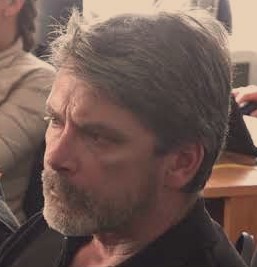Nationalism including Ukrainian nationalism today only understands force as a foreign policy. When your politics start with "we are perfect" it always ends with "you are not."
Two main Russian nationalist groups today are Essence of Time led by Sergey Kurinyan and Alexander Dugin 's National Bolshevik Front and the Eurasian Movement.
In the words of Alexander Nevzorov, a Russian political commentator, "if w e had had Kurginyan and Dugin instead of Putin, there would have been hell for all of us to pay, they would have unleashed a European and World War without a shadow of a doubt, without considering consequences at all. But Dugin and Kurginyan do not have the slightest impact on what is going on in the Kremlin and do not even get coaching there."- Sobesednik.ru
"For Russia, for a Russian person, the feeling of patriotism, the sense of national identification are very important - what is unfortunately being lost in some European countries," Putin said. "We've got that inside of us, in our heart - love for the homeland."Putin recalled the words of outstanding Soviet Russian scholar Dmitry Likhachev that patriotism drastically differs from nationalism."Nationalism is hatred of other peoples, while patriotism is love for your motherland," Putin cited his words."- Putin reminds that "patriotism drastically differs from nationalism" TASS April 16
Why is Russia the Greatest Threat to the USA?
Nations get by in the world with the treaties and agreements they sign. Great nations are great because their word is their bond. They are trustworthy. No country they deal with needs to guess where they stand on an issue. The USA made its reputation across the world from the 1950's through the 1980's as a country that was trustworthy.
Since the 1990's Russia has complained that they had an agreement that NATO "would not expand one more inch to the East" and encroach Russian territory. But did they?
According to the Brookings Institute, the answer is no! NOPE! And no! When Gorbachev was asked why he didn't have Secretary Baker's promise written on paper, Gorbachev said the "subject never came up." - Did NATO Promise Not to Enlarge? Gorbachev Says "No" Steven Pifer Thursday, November 6, 2014
That should settle the issue, shouldn't it? Or should it? Not quite. If the subject of NATO expansion never came up, why is it the stuff of urban legend now? Why would the government of Russia put so much stock in it? And lastly, where are all these journalists and academics getting the James Baker quotes from? That question even includes the Brookings Institute article which refutes the concept.
This subject has been studied by academics over the last decade and a half very carefully. The problem has been most of the information came only from the old Soviet archives about the period. Until recently, the US has kept it under wraps. The George HW Bush library recently released the files from the period and they are devastating to NATO expansion policy.
The latest study, which is inclusive of the previous academic material and answers the questions and speculations the papers put up clearly demonstrates how one sided the US kept the documentation trail. It also shows that Mikhail Gorbachev would rather be called a liar than a fool.
The first premise is whether or not all binding diplomatic agreements are in writing. The answer is no. The qualifier is whether one party gives something substantial for an expected return. In this case, it was the prize of the Cold War, which was Germany "on the other side of the wall." Whichever side would unite Germany under their politics determined the winner of the Cold War.
Verbal agreements are binding. "In international politics, if private and unwritten discussions are meaningless, then diplomacy itself would be an unnecessary and fruitless exercise...
...Secretary of State John Kerry acknowledged, even non-"legally binding" agreements constitute a "necessary tool" of foreign policy. Put simply, explicit and codified arrangements are neither necessary nor sufficient for actors to strike deals and receive political assurances. Moreover, informal agreements and understandings were especially important during the Cold War. The 1962 Cuban missile crisis, for example, was resolved in part through an informal agreement whereby the United States and the Soviet Union each removed missiles near the others territory ."- "Deal or No Deal? The End of the Cold War and the U.S. Offer to Limit NATO Expansion" Journal Article, International Security , volume 40, issue 4, pages 7-44 Spring 2016 Author: Joshua R. Itzkowitz Shifrinson, Former Associate, International Security Program, 2012--2013; Former Research Fellow, International Security Program, 2011--2012
Shifrinson goes further to say the assurance called the Kohl/ Genscher (proposed by Germany) proposal became US State Dept. policy. It also guaranteed that NATO's focus would be changed to political and it would wind down its security activity. The Conference on Security and Cooperation in Europe (CSCE) would take over those duties and the Soviet Union was welcome to be a part of Europe's security architecture.
In July 1990 discussions came to a head. "Discussions over the preceding weeks suggested that the Soviet position on Germany might change "depending on steps taken by NATO," as Soviet leaders sought changes in NATO policy that would allow them "to tell our people that we face no threat--not from Germany, not from the US, not from NATO."- ibid- "Notes from Jim Cicconi re: 7/3/90 pre--NATO Summit briefing at Kennebunkport"; and"Memcon from 6/22/90 mtg w/USSR FM Shevardnadze, Berlin, FRG."
Next Page 1 | 2 | 3 | 4 | 5 | 6 | 7
(Note: You can view every article as one long page if you sign up as an Advocate Member, or higher).





